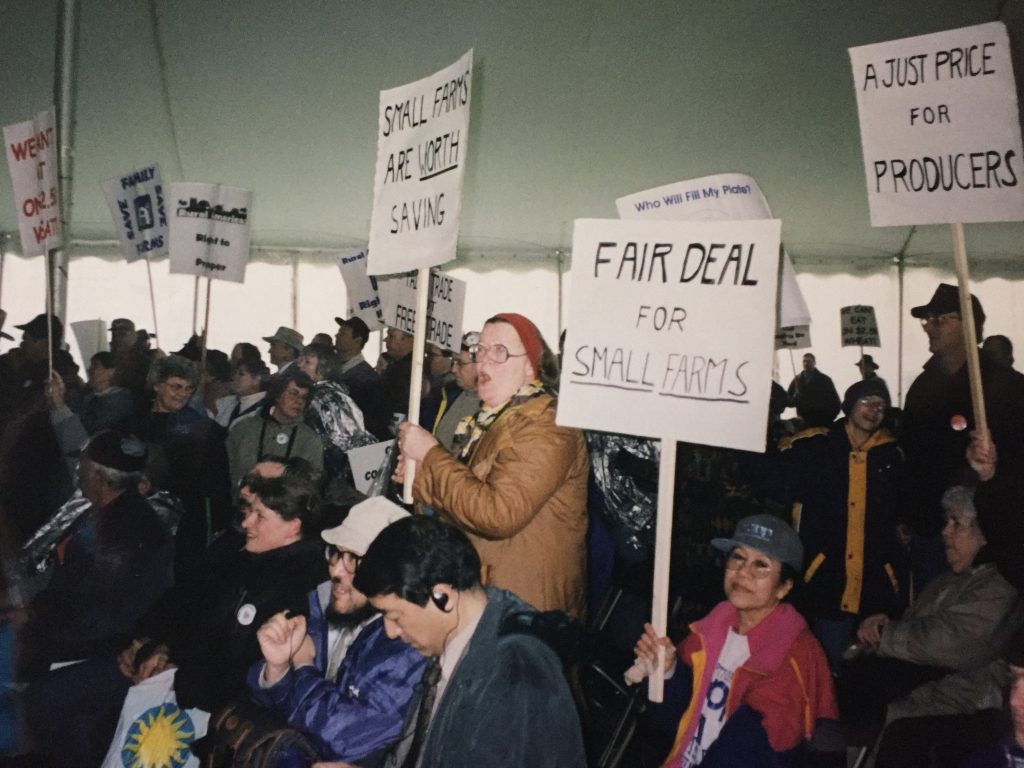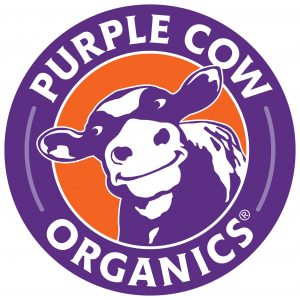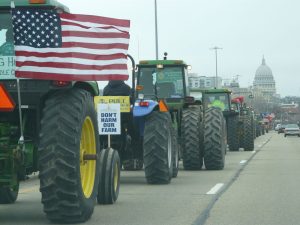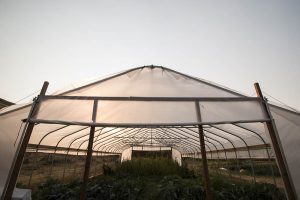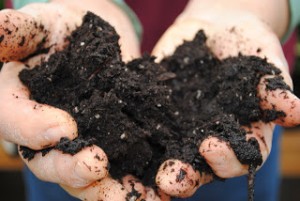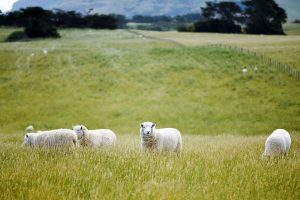Each year, the Farm Aid festival and its associated events provide a unique space for farmers, advocates, leaders and citizens to come together in community. Farm Aid hosts focused gatherings that bring us together in common purpose and strengthen our movement.
Read below for more information and to register for this year’s events.
Thursday, September 19
FORWARD FROM HERE
WISCONSIN PROFILES IN RESILIENCE & COLLECTIVE POWER
The Riviera Ballroom, Lake Geneva, WI
9:00 am – 5:00 pm
This year’s Farm Aid festival comes at a time when farmers are enduring the worst economic downturn since the 1980’s. If our 34 years of working together has taught us anything, it is that when we pull together rather than being pulled apart, we are a powerful force for change.
All of us have stories that need to be told and lessons that need to be shared, whether we are from Native American nations, rural communities or urban neighborhoods. Forward From Here will help us, as a community, understand how our various efforts to build power are connected and inspire us to work in solidarity moving forward. Inspired by Wisconsin’s proud history of being stronger together, this gathering is a celebration of the work we have done and a unique opportunity to share and shape the actions we can take to make a difference when we go back home. Join us, bring your stories, hear your neighbors’ stories, and go home ready to have an impact. We are stronger, together.
AGENDA
Forward From Here Agenda
Thank you to our event sponsors
TRACTORCADE WELCOME RECEPTION
The Riviera Ballroom, Lake Geneva, WI
7:00pm – 9:00pm
FREE & Open to the public
Refreshments Provided
Hosted by our friends at Family Farm Defenders, and sponsored by our friends National Family Farm Coalition, this welcome reception will feature a “Tractorcade Chat” with David Senter, American Agricultural Movement (AAM) and Joel Greeno, Family Farm Defenders (FFD), moderated by “Beervangelist” and host of the Craft Nation podcast, Fred Bueltman! The evening will also include a welcome from Tom Hartz, the Mayor of Lake Geneva, screening of footage of historic tractorcades including the March 2011 “Pull Together for Working Families” tractorcade in Madison, WI that involved 50+ tractors and drew 150,000 people to the State Capitol (the largest rally in the state’s history).
Friday, September 20
BREAKFAST CONNECT
The Cove, 111 Center St, Lake Geneva, WI
8:00 am – 10:00 am
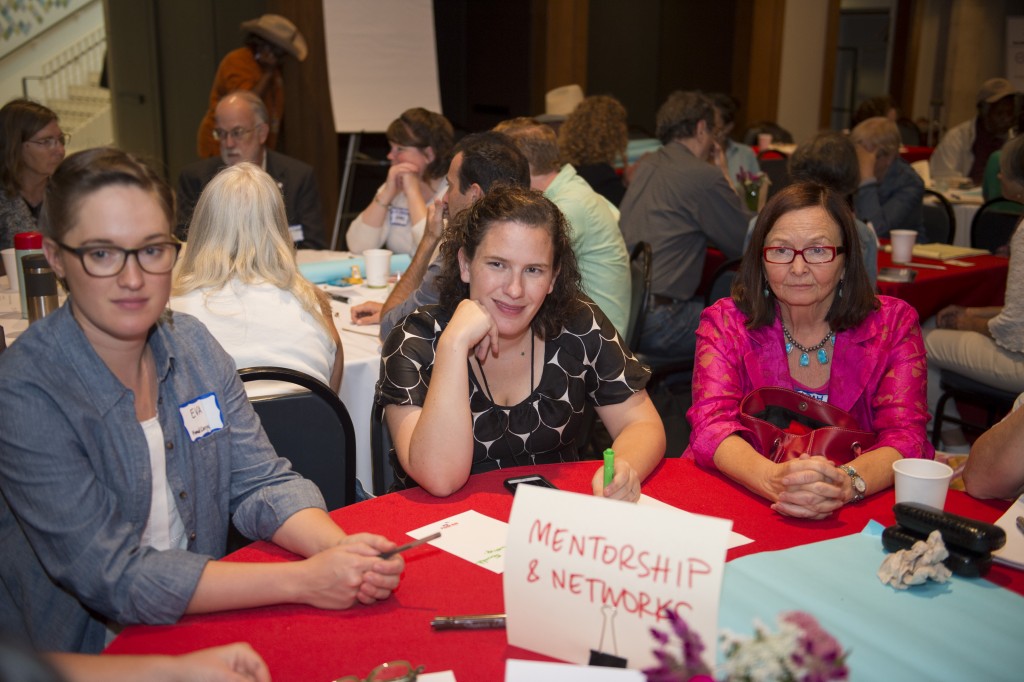
The Farm Aid 30: Strength From Our Roots conference at The Fourth Presbyterian Church of Chicago in Chicago, Illinois on September 18, 2015.
When Farm Aid comes to town, food and farm leaders from the festival region connect with each other and with leaders from across the country joining us each year. With a farm crisis advancing in the country, the widespread turmoil caused by a divisive political atmosphere and a punishing year of weather-related disasters, connection and rejuvenation could not be more important. Breakfast Connect will offer a casual space for nourishment of all kinds.
THE ROOTS OF WISCONSIN FARM TOURS
All tours depart from The Cove at Lake Geneva at 10:00 am
Farm tours offer an authentic opportunity for peer-to-peer exchange among farmers, as well as on-the-ground exploration of pressing issues facing local food systems for farmers, advocates, activists and eaters. This year’s confirmed farm tours include:
Exploring ‘The Good Land’
Milwaukee Food Systems Tour
Adapted from traditional Ojibwe, Menominee and Potawatomi languages, the name Milwaukee literally translates to “the Good Land.” This tour will highlight organizations working to advance economic opportunity to farmers, bring farm fresh produce to food insecure families, and develop a more just food system. Participants will see how area farmers utilize sustainable practices to revitalize the land they work and hear from a Potawatomi leader about their ancestral land, tribal history and how they are reviving traditional food systems to strengthen their communities.
Sites and Speakers Include:- FONDYfood Center’s 40-acre farm is located on the 444-acre Mequon Nature Preserve, just north of Milwaukee. Lead by Fondy Farm Director Stephen Petro, the farm project supports 26 predominantly immigrant Hmong farm families by providing long-term leases and the amenities needed to succeed. In the last 3 years, Marquette University professor Michael Schläppi has transformed a former cornfield into a 1-acre rice paddy, advancing ecosystem restoration for this special area of land.
- Hunger Task Force is Milwaukee’s free and local food bank and a leader in Wisconsin’s anti-hunger community. Hunger Task Force delivers healthy food free of charge to 50,000 people each month in Southeastern Wisconsin through local pantries, meal programs and senior centers. Hunger Task Force’s own 208-acre farm grows 25 types of fruits and vegetables for the express purpose of feeding the hungry. Annually, half a million pounds of locally-sourced produce are grown and distributed through Hunger Task Force’s network, increasing access to fresh and healthy foods for local families.
- Jeffrey A. Crawford is the Attorney General for the Forest County Potawatomi Community. He handles a wide variety of matters, including Indian law, business, regulatory, compact counsel, governmental affairs, project development, contracts, environmental issues, complex negotiations, and litigation management. Mr. Crawford served on the boards of Governor Doyle’s Global Warming Task Force and the Menomonee Valley Partners. He is a current member of the Greater Milwaukee Committee and the Gathering Waters Conservancy. He is also the President of the FCPC Renewable Generation LLC.
- Adam Carr is an independent based in Milwaukee, WI, who works at the intersection of community and communication. Carr’s work ranges from writing to media, public art to in-depth tours. as a representative of the Rural/Urban Flow project, he will discuss both the history and contemporary connection between Milwaukee and Wisconsin, with a focus on agricultural/cultural production.
- Alice’s Garden: Regenerative Agriculture in the urban context takes on many forms. This stop will explore ethnobotany, the historical relationship between People of African Descent and farming, and models for cultivating farmers from urban areas. It will also highlight Urban Rural Flow, a collaboration between Milwaukee County and Sauk County.
Soil Obsessed
Resilient Agriculture & Cross-Regional Ecosystem Stewardship
In 1933, in the midst of the Dust Bowl and Great Depression, a new federal agency selected Wisconsin’s Coon Creek watershed as the first site to demonstrate the values of soil conservation to farmers. The agency became the Soil Conservation Service in 1935, creating public works programs and proselytizing farm-based approaches to soil stewardship. To this day, the ethic of soil stewardship pervades Wisconsin’s farming communities. Farmers and leaders in regenerative agriculture will show participants the varied practices they implement on their farms. Discussion will also cover cross-regional implications of farming practices in the Great Lakes and Mississippi River watersheds. Members of the Great Lakes Indian Fish and Wildlife Commission (GLIFWC) will speak to the way agricultural pollution affects Great Lakes tribal communities, while a Louisiana shrimp fisher will discuss how agricultural run-off in Wisconsin affects his work over 1,000 miles downstream.
Sites and Speakers Include:- Michael Fields Agriculture Institute works with farmers, researchers, East Troy community members, and politicians to effect change throughout Wisconsin. Through crop and soil research, farm and food education, public policy, and land transition work their impact is felt across the state. The Institute’s 200+ acre farm will obtain organic certification in October and will house its organic research in the future. This tour will explore the 50 acres where conservation practices were implemented in 2018, including a new waterway and native prairie grass protection of 2 on-farm kettles that control runoff into a nearby lake and the Mukwonago River watershed. Other conservation enhancements include protective buffers around timber areas and an enhanced pollinator habitat.
- Lang Manor Farms and Pleasant Valley Farms: Tom and Margaret Burlingham own and operate Lang Manor Farm, where they grow 500 acres of hay, corn, soybeans, wheat, and custom bale. Margaret is an active member of the Jefferson County Farmland Easement Commission, while Tom’s passion for sustainable agriculture is evident in his long-term use of no-till and cover cropping to enhance soil health and protect the farm’s highly erodible soils. This stop will highlight cover crop mixes after wheat and the results from an ongoing examination of the economics of cover crop use. Neighboring farmer Tom Novak of Pleasant Valley Farms, who is also involved in the study, will join the discussion
- Brattset Family Farm: is a second-generation farm that is owned, managed and cared for by Kirsten, Pat, Jessica & Jacob Jurcek, and Damon, Trish & Bethany Brattset. Over 290-acres, Brattset Family Farms produces 100% grass-fed and -finished beef in compliance with Certified Organic Standards and Animal Welfare Approved. The family farm is centered around 146 acres of organically managed crop and pastureland, restored prairies, woodland, wooded wetland, wild life ponds and habitat, a herd of 100% grass fed and finished beef cattle, pastured hogs, seasonal poultry flocks, seasonally milked dairy cows, and a silvoculture nut and fruit tree planting. The farmland is preserved for agricultural use & wildlife conservation in perpetuity, for the benefit of future generations through a conservation easement held by the Drumlin Area Land Trust.
- Michael J. “Mic” Isham, Jr. Mic is the Executive Administrator of the Great Lakes Indian Fish and Wildlife Commission (GLIFWC). Formed in 1984, GLIFWC represents eleven Ojibwe tribes in Minnesota, Wisconsin, and Michigan who reserved hunting, fishing and gathering rights in the 1837, 1842, and 1854 Treaties with the United States government. Mic is a member of the Lac Courte Oreilles Band of Lake Superior Chippewa Indians.
- Lance Nacio is the owner and shrimper of Anna Marie Shrimp Co. based in Louisiana. Anna Marie Shrimp is building a legacy where tradition meets innovation. The result is leadership which will improve fishing practices, freshness standards, and wildlife sustainability. Lance has been working with Michael Fields Institute to educate farmers on the effects of nutrient run-off in his waterways.
Here for the Long Haul
Innovative Marketing Strategies to Survive the Crisis
As today’s farm crisis unfolds, farmers are often desperate for quick-fix solutions to keep the farm afloat. This tour will visit farmers who utilize direct marketing, market diversification, coop development and other practices to survive and thrive through crisis. With hemp being touted as a miracle crop and production ramping up in states across the country, we’ll hear a more grounded conversation about hemp production and marketing and what farmers should keep in mind as they consider hemp production.
Sites and Speakers Include- Hughes Farm is a sixth generation farm, owned and operated by Randy and Judy Hughes who own and rent over 5000 acres of tillable land centered in Rock County. Among other products, Hughes Farm grows certified organic blue corn and processes organic blue corn chips nearby. Participants will visit the farm to hear more about the Hughes’ experience with value added production.
- Pinn-Oak Ridge Farms: Steve & Darlene Pinnow’s successful business starts with raising rotationally-grazed lambs on their 140-acre farm and includes building an on-farm lamb processing facility in order to serve farmers across southern Wisconsin. The Pinnows pride themselves on freshness and paying other farmers a fair price that is considerably above the going market rate for their meat. Their farm also delivers to stores throughout Wisconsin, parts of Illinois and Indiana. They are just about to expand their facilities, adding a new office and expanded storage for the slaughter facility.
- Michael Fields Agriculture Institute works with farmers, researchers, East Troy community members, and politicians to effect change throughout Wisconsin. Through crop and soil research, farm and food education, public policy, and land transition work their impact is felt across the state. The Institute’s 200+ acre farm will obtain organic certification in October and will house its organic research in the future. This tour will explore the 50 acres where conservation practices were implemented in 2018, including a new waterway and native prairie grass protection of 2 on-farm kettles that control runoff into a nearby lake and the Mukwonago River watershed. Other conservation enhancements include protective buffers around timber areas and an enhanced pollinator habitat.We’ll also discuss Michael Fields’s ongoing hemp research.
- Turtle Creek farm: Starting in 2010, Janet Gamble and Steve Tomlins have co-managed the conversion of 100 acres of corn and soybeans into an ecologically rich, certified organic regenerative farm, with a vegetable and fruit CSA, pasture for cattle and hogs, and, more recently, hemp for medicinal oils. They have become models for market innovation, particularly when derived from collaborating with other farmers. On their own farm, they are building collaborative leadership teams for the multiple enterprises that represent their diversified markets.
- Paul Dietmann is a Senior Lending Officer in the Mission Financing group at Compeer Financial, a member-owned rural lending cooperative and Farm Credit System institution serving Illinois, Minnesota, and Wisconsin. Paul and his colleague, Sai Thao, are responsible for Compeer’s Emerging Markets Loan Program, which provides loans and technical assistance to farmers who market their products through local food systems. Prior to joining the staff at Compeer, Paul spent 16 years with the State of Wisconsin; eleven years as a county agriculture agent with the University of Wisconsin-Extension and five years as director of the Wisconsin Farm Center. He served as Wisconsin’s Deputy Secretary of Agriculture in 2010.
He is co-author of the book Fearless Farm Finances: Farm Financial Management Demystified and the newly released publication Turning Grain Into Dough: Farm Financial Management for Organic Grain and Crop Rotation.
“RIGHT TO HARM” FILM SCREENING
Emagine Geneva Lakes Theatre: 2565 WI-120 Lake Geneva, WI 53157
Doors Open at 6:30pm. Screening starts at 7pm.
Panel with Matt Wechsler, Mary Dougherty of Words for Water, SRWN and Farms Not Factories Wisconsin and Lynn Utesch, cattle rancher and Keuwanee Cares to Follow.
Register for Free Tickets Here
More Details available Here
Register for Events

